The greatest NBA players ever on very, very bad teams

In basketball, with just five players on the floor at a time per squad, one star can really carry a team to a higher level.
Prime example: In the mid-2000s, Kobe Bryant dragged the Los Angeles Lakers, whose third-leading scorer was usually Smush Parker or Luke Walton, to multiple playoff appearances after Shaquille O’Neal left and before Pau Gasol arrived.
As such, it’s a very difficult exercise to find elite NBA player seasons on very, very bad teams, which we – for this article – defined as campaigns in which the team won fewer than 25 percent of its games. Almost always, if an NBA player is having an elite season, their team will win more than 25 percent of its contests.
Regardless, the season rookie Victor Wembanyama is having got us thinking: What are some of the best NBA seasons put up by players on real lousy squads?
Find out what we determined below.
Kevin Love (2010-11 Minnesota)
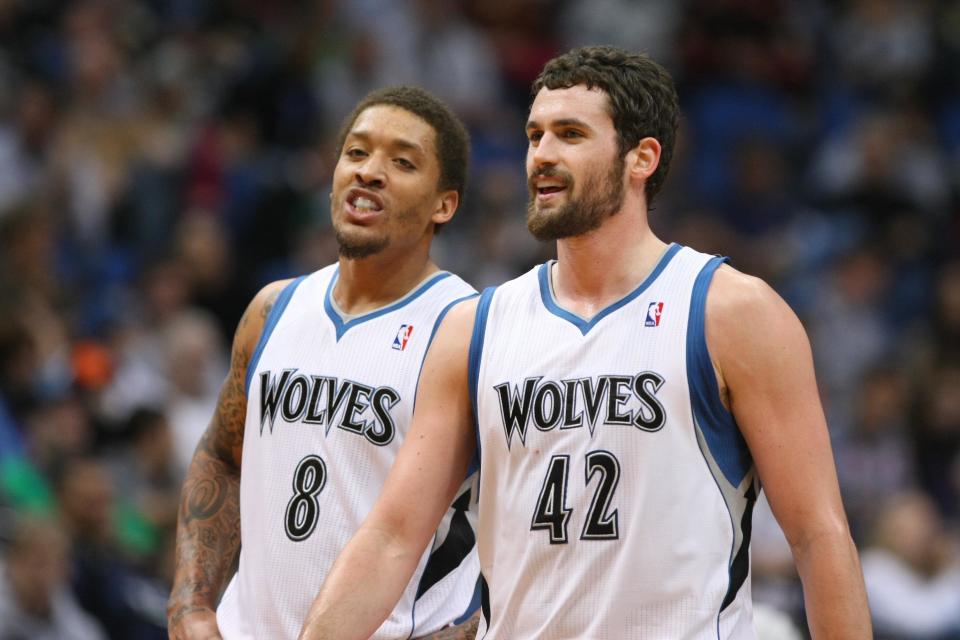
Team record: 17-65, 20.7% win percentage
The winner of Most Improved Player in 2010-11, future Hall-of-Famer Kevin Love had his breakout season in his third NBA campaign, averaging 20.2 points, a league-leading 15.2 rebounds and 2.5 assists while shooting 41.7 percent from three.
Unfortunately for Minnesota Timberwolves fans, Love’s incredibly impressive campaign, one in which he also earned All-Star honors, wasn’t enough for the team to be any good that year, as the team went 17-65 for a 20.7 percent win rate, which ultimately led to then-head coach Kurt Rambis getting fired.
Of course, Rambis wasn’t exactly set up for success, as the second-leading scorer on the Wolves that season was Michael Beasley and the third was Luke Ridnour with the team still slowly recovering from the departure of team legend Kevin Garnett in 2007-08. A slew of yearly draft night errors by then-head shot-caller David Kahn did not help matters, either.
For a glimpse into how bad the Wolves were in 2010-11, Love was the only player on the team with a positive box plus/minus on the season. Ridnour and Anthony Tolliver were +0.0s and everyone else on the roster was a negative.
Love actually ranked 13th league-wide in BPM that year, as well as 13th in VORP and Top 10 in Win Shares, making it almost impressive that Minnesota was as bad as it was despite having an All-NBA-level big man leading the way.
Victor Wembanyama (2023-24 San Antonio)
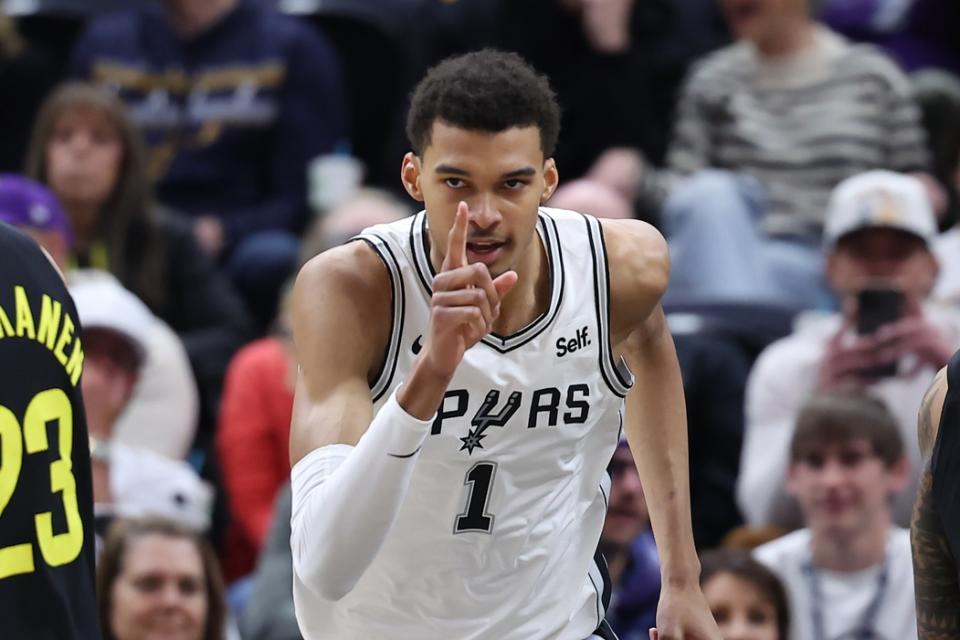
Team record: 19-58, 24.7% win percentage
The very likely Rookie of the Year, reigning No. 1 draft pick Victor Wembanyama also has an outside shot of making an All-NBA team – it’d be a surer thing if the San Antonio Spurs’ record wasn’t 19-58 right now – and will garner Defensive Player of the Year consideration thanks to his 3.5 nightly rejections.
Outside his otherworldly defensive impact, Wembanyama is also putting up 21.1 points, 10.6 rebounds, 3.8 assists and 1.3 steals per contest while shooting 46.3 percent from the floor, looking like a future MVP-level talent for San Antonio.
The things the French big man can do we simply have never seen before, as a 7-foot-4 human being with his quickness, ball-handling ability, shooting touch and aptness for hitting tough shots – of the off-the-dribble and step-back variety – has never existed.
The Spurs being as bad as they are this season doesn’t reflect poorly on Wembanyama whatsoever, as he’s just a 20-year-old rookie playing on a very young team that has been rebuilding for some time now, so his inclusion on this list should be seen as praise for the ball-handling, shot-making big man and not any sort of knock.
Walt Bellamy (1961-62 Chicago)
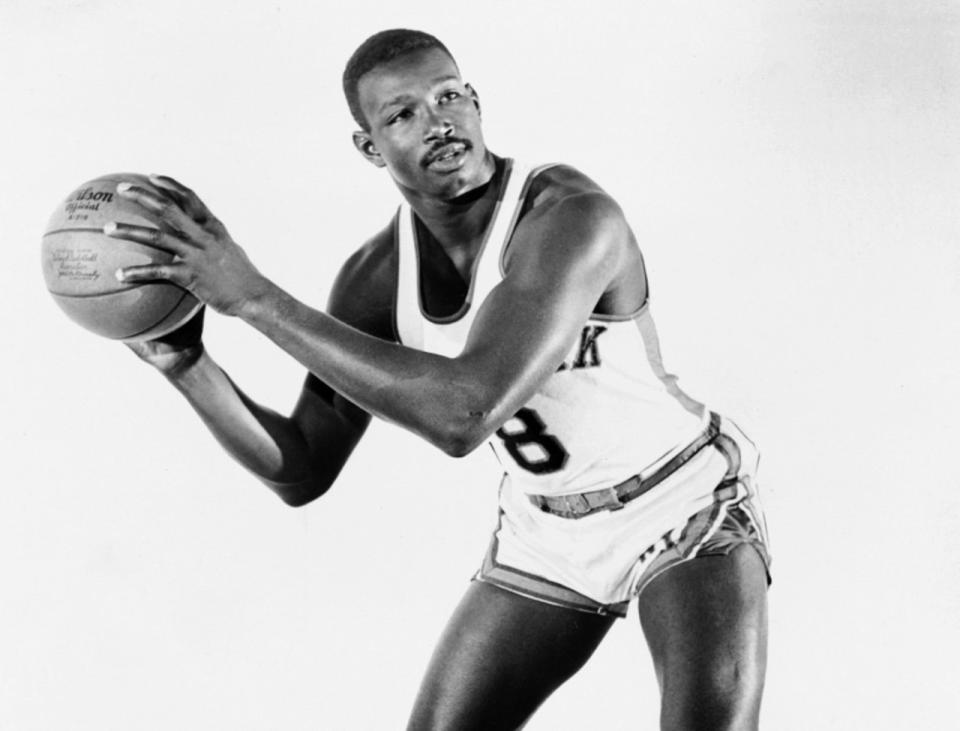
Team record: 18-62, 22.5% win percentage
A theme is starting to present itself in this ranking, as Hall-of-Famer Walt Bellamy was in a similar predicament to the players around him on this list, performing extremely well early on in his career on a very bad team.
The Rookie of the Year in 1961-62 for the Chicago Packers, Bellamy was the lone bright spot of the team as he put up 31.6 points (No. 2 in the NBA that year behind only Wilt Chamberlain and the second-highest scoring average ever for a rookie, again behind just Chamberlain), 19.0 rebounds (No. 3 in the NBA) and 2.7 assists on a league-leading 51.9 percent shooting mark.
Bellemy, the No. 1 pick in the previous draft for Chicago, was also named an All-Star for his 1961-62 contributions, easily making him one of the best players ever on a team with a sub-25 percent win rate.
Sidney Wicks (1971-72 Portland)
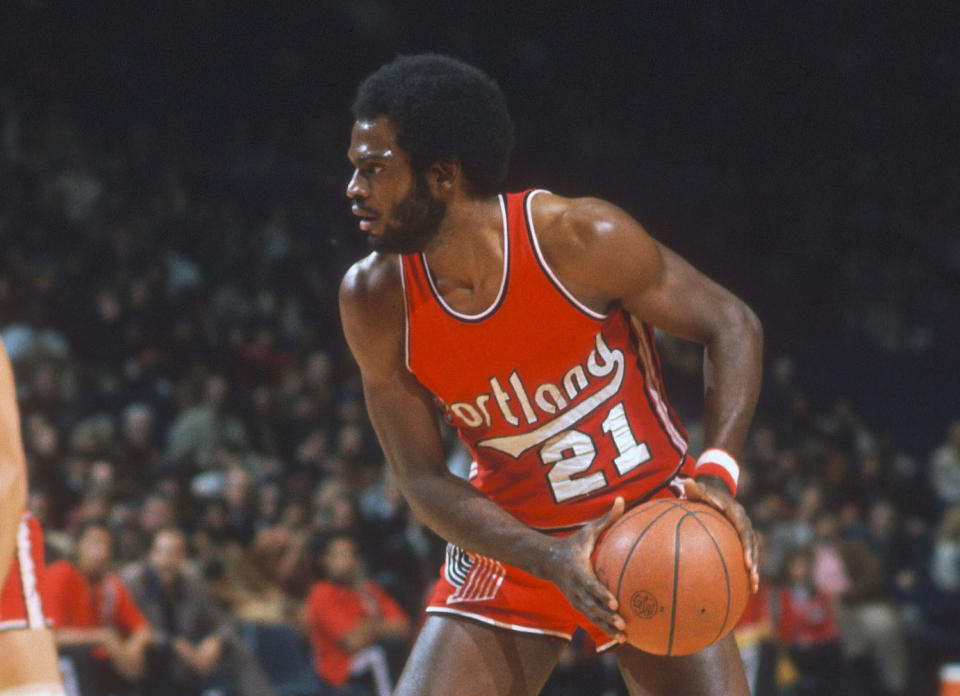
Team record: 18-64, 22.0% win percentage
Another big man whose first NBA season was a tough one, team record-wise, four-time All-Star Sidney Wicks was Rookie of the Year in 1971-72 and even earned MVP votes for a campaign in which he averaged 24.5 points, 11.5 rebounds and 4.3 assists on 42.7 percent shooting.
1971-72 was just Portland’s second season in the NBA, the team’s best player the year prior, Geoff Petrie, missed over 20 games due to injury and the Blazers’ head coach to start the campaign, Rolland Todd, would be fired by early February.
Talk about a tumultuous season.
Good on Wicks being able to perform at that level (on offense, his defense left a lot to be desired) with all that going on around him.
Gail Goodrich (1968-69 Phoenix)
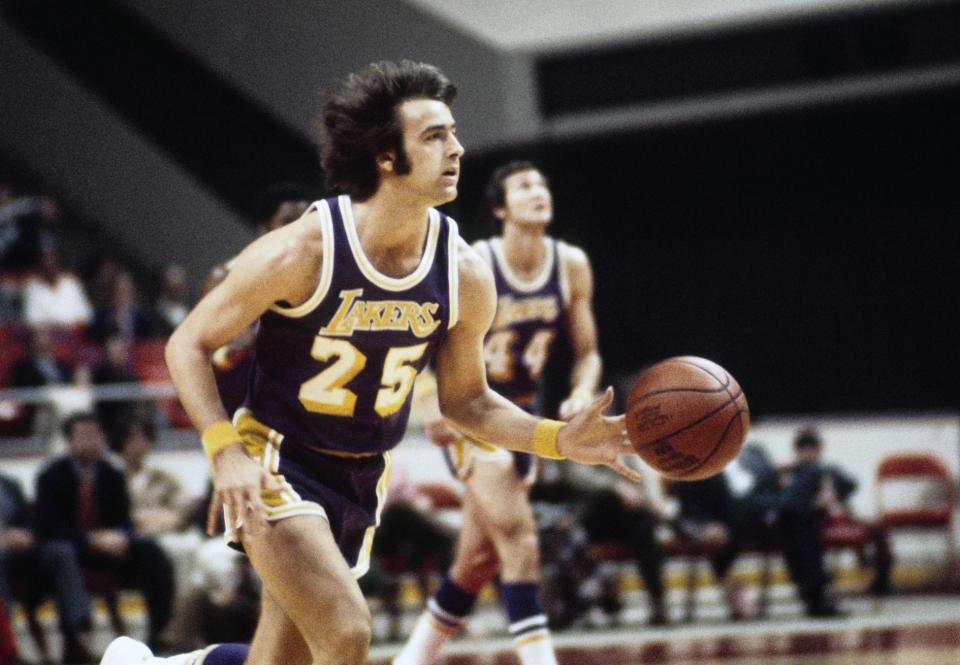
Team record: 16-66, 19.5% win percentage
Hall-of-Fame combo guard Gail Goodrich spent the first three years of his career with the Lakers before they lost him to the Phoenix Suns in the expansion draft ahead of the 1968-69 season.
1968-69 would be a very tough campaign for Phoenix – as evidenced by its record and win rate but understandable considering its first-year expansion status – but Goodrich himself had a great year, earning All-Star honors (he was technically an injury replacement for Jerry West in the contest). Goodrich wound up averaging 23.8 points, 5.4 rebounds and 6.4 assists on 41.1 percent shooting in 1968-69, establishing himself as one of the league’s top combo guards.
Goodrich would perform so well for the Suns that just two seasons later, the Lakers would re-acquire the eventual Hall-of-Famer from Phoenix via trade, a move that paid off when Los Angeles won the 1971-72 championship, a title run that Goodrich played a huge part in.
Antawn Jamison (2000-01 Golden State)
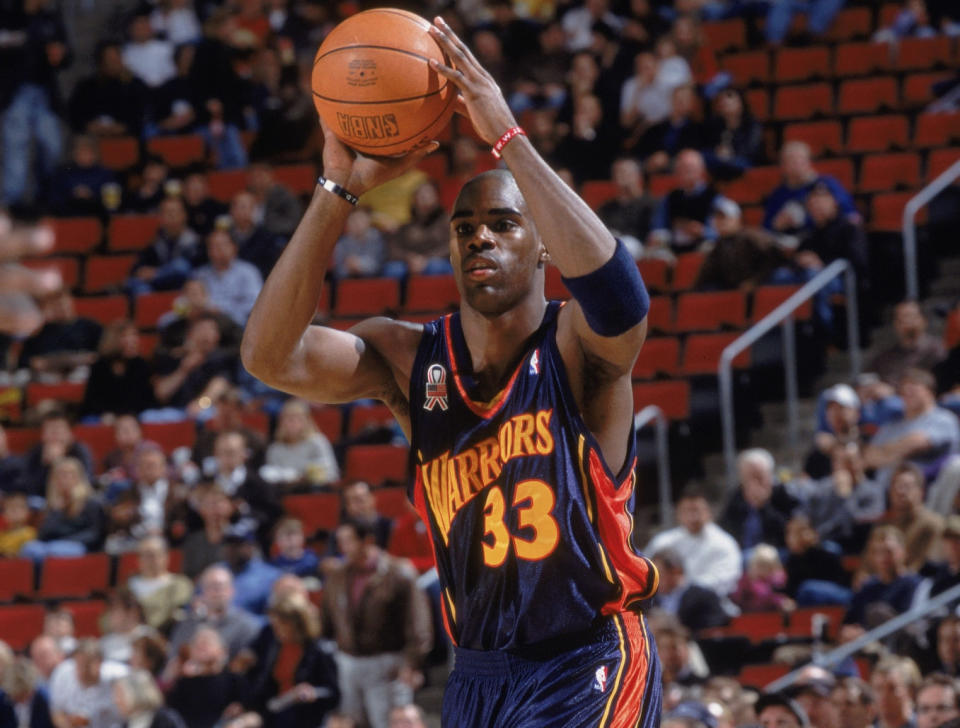
Team record: 17-65, 20.7% win percentage
One of the good-player-on-bad-team GOATs, former No. 4 overall pick Antawn Jamison actually had a couple of seasons that got consideration to be included in his ranking.
Ultimately, we went with his 2000-01 showing, a campaign in which, to Jamison’s credit, he played in all 82 games despite the Warriors’ abysmal season that ended with a 17-65 record. Surrounded by the likes of Marc Jackson (not that one), Bob Sura, Mookie Blaylock and Erick Dampier, Jamison was one of the lone bright spots for Golden State that season.
Jamison wouldn’t receive any accolades or even any votes for awards for his 2000-01 campaign but he did put up impressive numbers, averaging 24.9 points and 8.7 rebounds on 44.2 percent shooting. However, his numbers were somewhat empty as Jamison wasn’t the most efficient scorer and was pretty much a nothing defender (he didn’t crack the Top 50 in VORP or BPM for 2000-01). And yet, he made the Warriors 8.9 points per 100 possessions better when he was on the floor that season, which speaks to how bad the roster around him was.
Dwyane Wade (2007-08 Miami)
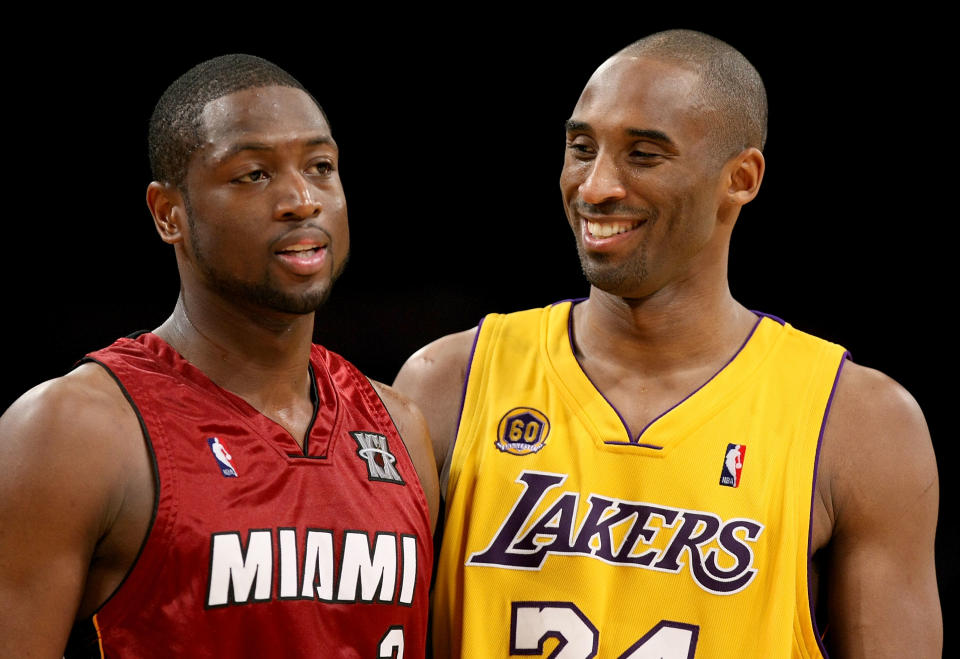
Team record: 15-67, 18.3% win percentage
Two years removed from the first championship of his career and Finals MVP honors, injuries badly plagued Dwyane Wade‘s 2007-08 season (he had multiple surgeries in the offseason leading up to that disastrous campaign), one that saw the Miami Heat initiate a quick rebuild and move on from the O’Neal era by the trade deadline.
Wade’s season would be over by early March (he also missed the first two weeks of the campaign) but even so, the Hall-of-Famer averaged 24.6 points, 6.9 assists and 1.7 steals on 46.9 percent shooting in his 51 appearances and earned All-Star honors, making him one of the best players on a terrible team anyway.
His play just didn’t make much of a difference on a team that got very, very old – quickly. O’Neal (14.2 points and 7.8 rebounds per game) was already a shell of his former self and big offseason pickup Ricky Davis was disappointing.
Other leftovers from the 2005-06 championship team like Jason Williams and Alonzo Mourning were also basically at the end of their careers by that point, so even a healthy Wade would have had a tough time trying to get many wins out of that Heat squad.
Zydrunas Ilgauskas (2002-03 Cleveland)
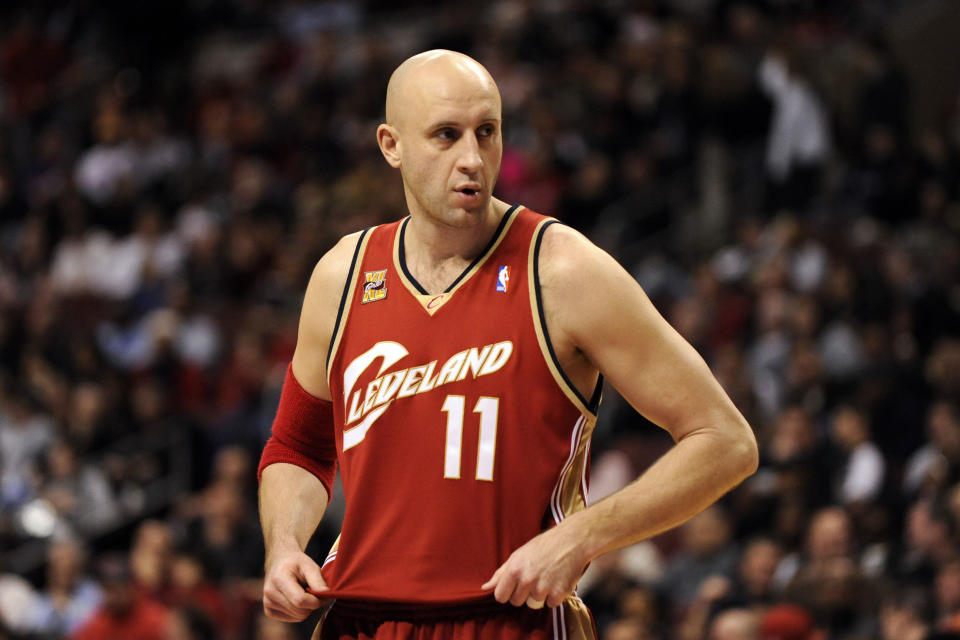
Team record: 17-65, 20.7% win percentage
Cleveland legend “Big Z” Zydrunas Ilgauskas was an All-Star in the infamous campaign of 2002-03 that saw the Cavaliers completely and unabashedly tank in hopes of landing LeBron James.
Ilgauskas averaged 17.2 points, 7.5 rebounds and 1.9 blocks that season on 44.1 percent shooting and even got some Most Improved Player votes. He did have some notable teammates on that Cavs team, namely Ricky Davis (who sure did a lot of losing in his career… fun fact: In 12 NBA seasons, Davis played in 11 total playoff games) and a rookie-year Carlos Boozer.
Needless to say, that Cavaliers team was pretty lacking in talent.
Even so, props to Big Z, a fan favorite for many years, for putting up such an impressive statistical season for a team so desperately trying to lose and improve draft odds.
Nate Thurmond (1964-65 San Francisco)
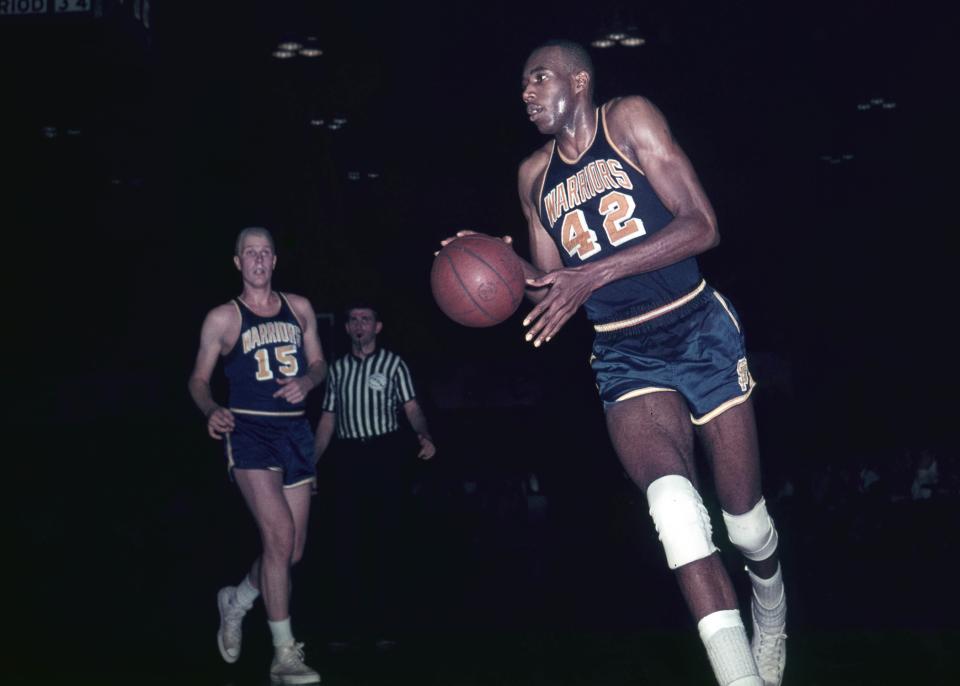
Team record: 17-63, 21.3% win percentage
In just his second season in the NBA, Hall-of-Fame big man Nate Thurmond was already an All-Star, averaging 16.5 points, 18.5 rebounds and 2.0 assists on 41.9 percent shooting from the floor.
His team that season, the then-San Francisco Warriors, had some serious talent on it, too, namely in the form of one Wilt Chamberlain, but he was traded midseason to the Philadelphia 76ers. Even with Chamberlain, though, the Warriors had just lost 11 games in a row and were seriously floundering.
Two-time assist champion Guy Rodgers and Al Attles, two other Hall-of-Famers, were also on the roster, making this 17-63 campaign by the Warriors truly impressive.
Elton Brand (2000-01 Chicago)
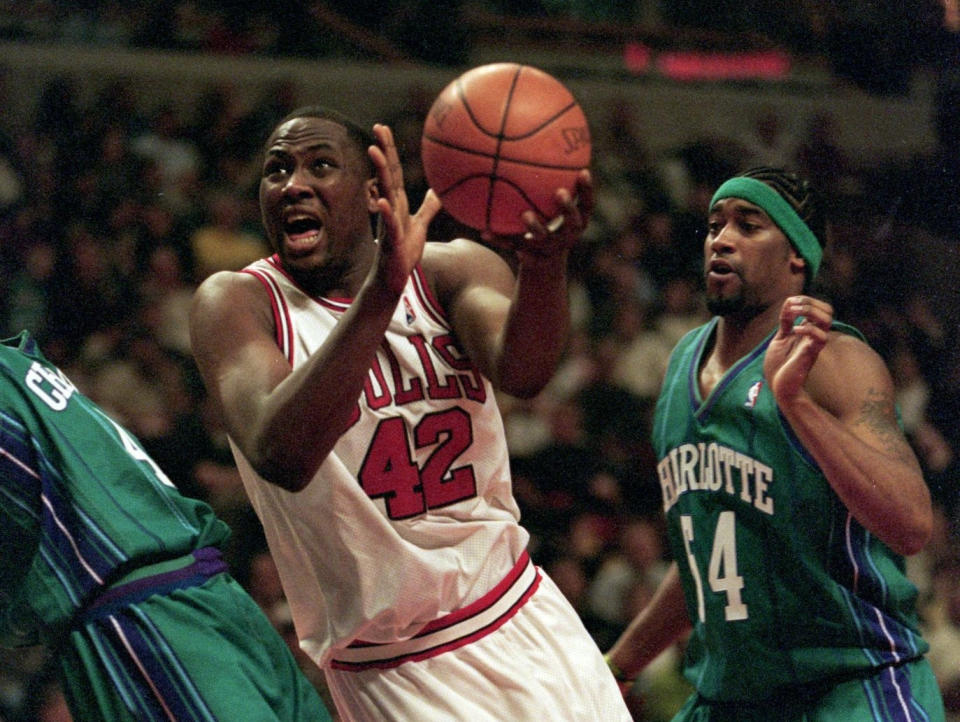
Team record: 15-67, 18.3% win percentage
The No. 1 pick in the 1999 draft, Duke legend Elton Brand was in his second season, a member of the Chicago Bulls, when the team went 15-67 despite Brand performing so well.
Brand, an All-Star that season, averaged 20.1 points, 10.1 rebounds, 3.2 assists, 1.0 steals and 1.6 blocks on 47.6 percent shooting in 2000-01 while playing in 74 games.
That Bulls team was just very young and not ready to compete, though it did feature some other prominent names outside of Brand, like a 21-year-old Ron Artest (now Metta Sandiford-Artest), a 20-year-old Jamal Crawford and a 24-year-old Brad Miller.
That would be Brand’s final season in Chicago, as the Bulls traded him to the Los Angeles Clippers the following offseason.
Devin Booker (2018-19 Phoenix)
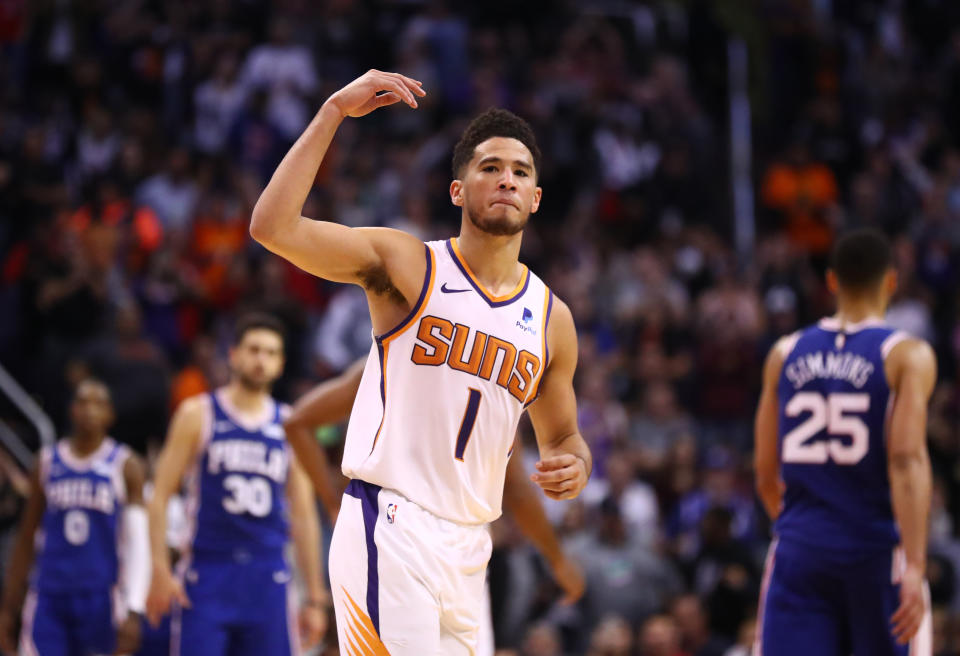
Team record: 19-63, 23.2% win percentage
It’s almost forgotten by now what an absolute mess the Phoenix Suns were in the 2010s, missing the playoffs every single year of that decade. By 2018-19, hope was on the horizon thanks to blossoming guard Devin Booker and the fact Phoenix won the No. 1 pick in the 2018 draft, which turned into Deandre Ayton.
Even so, 2018-19 was another brutal campaign for the Suns, with the team, in its lone season under Igor Kokoskov as head coach, going 19-63 despite having Booker playing at a very high level.
That season, Booker played just 64 games and didn’t get any accolades but did average 26.6 points (No. 6 in the NBA that year), 4.1 rebounds and 6.8 assists on 46.7 percent shooting, putting up one of the best single-season performances ever on a team that won fewer than 25 percent of its games.
What’s more, just two seasons later, the Suns were in the NBA Finals as Booker eventually silenced the critics who would say he was just a good-player-bad-team guy.
Michael Adams (1990-91 Denver)
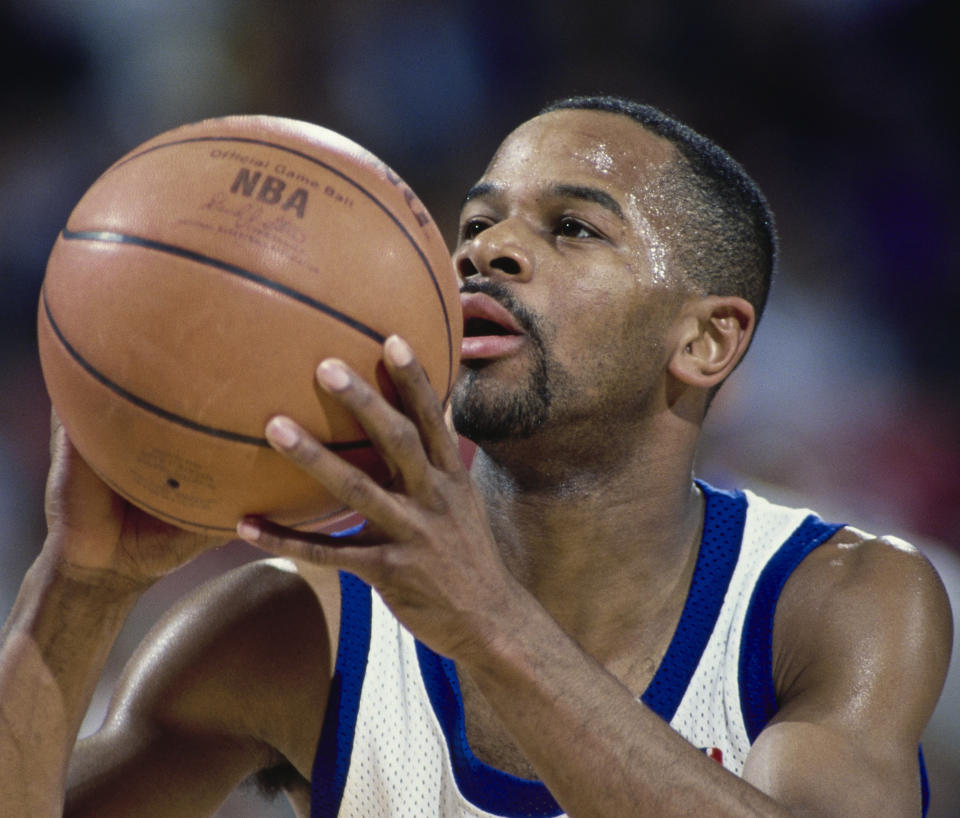
Team record: 20-62, 24.4% win percentage
The 1990-91 season was a bit of a disaster for the Denver Nuggets, who started a rebuild and went 20-62 after having just made the playoffs nine years in a row. Even so, Michael Adams had the best campaign of his career, putting up 26.5 points (No. 6 in the NBA that year), 10.5 assists and 2.2 steals, albeit on terrible efficiency, shooting 39.4 percent from the floor and 29.6 percent from three.
Adams was rewarded for his season, one that got him Most Improved Player votes, by getting traded to the then-Washington Bullets after the campaign. Adams would make the lone All-Star appearance of his career the following season in Washington, although the Bullets went 25-57 that year, showing that Adams might have been a bit of a good-player, bad-team type in his prime.
Still, putting up over 26 points, 10 dimes and two takeaways per night is no joke, and doing so on a team that won fewer than 25 percent of its games is almost even more impressive.

